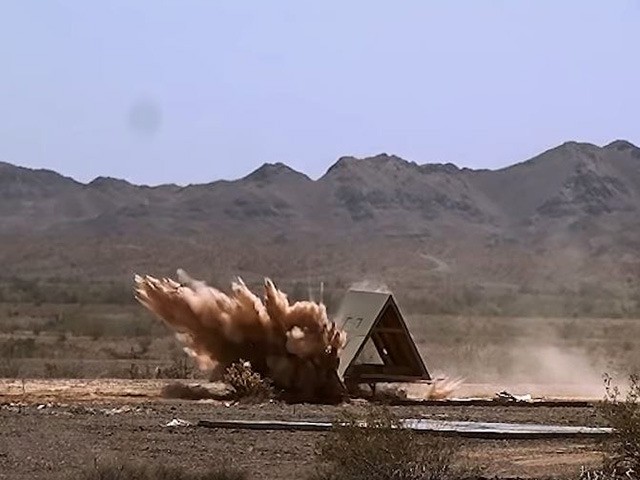The U.S. Department of Justice (DOJ) announced on Wednesday that former Raytheon engineer Wei Sun has been sentenced to 38 months in prison for transferring sensitive missile technology to China in violation of the Arms Export Control Act (AECA).
Sun, 49, is a Chinese national and naturalized U.S. citizen who worked as a highly-skilled electrical engineer for Raytheon Missile Systems (RMS) in Tucson, Arizona, from 2009 until 2019. RMS manufactures surface-to-air, air-to-ground, and ballistic missiles for various branches of the U.S. military.
Sun obtained a secret-level security clearance in the course of his employment, which was necessary because his work required “access to information directly relating to advanced and sensitive missile defense-related technology, some of which constituted defense articles controlled and regulated under the Arms Control Export Act,” as the January 2020 indictment against him explained.
In December 2018, Sun departed for China, Hong Kong, and Cambodia on a personal trip, bringing his RMS company-issued laptop computer with him. The laptop held sensitive data covered under the AECA and the regulations that implemented it, the International Traffic in Arms Regulation (ITAR).
ITAR required Sun to obtain an export license from the State Department before taking his laptop to China, but he never requested the appropriate license. While he was overseas, he used the company laptop and his Raytheon email account to tell the company he intended to resign his position to study and work abroad.
The indictment stated that Sun falsely stated his trip took him to Singapore and the Philippines but later admitted to Raytheon corporate security that he visited China, bringing the sensitive laptop with him. An audit revealed that Sun’s computer held data concerning Advanced Medium-Range Air-to-Air Missiles (AMRAAM), plus security software that was also subject to export controls.
China researcher Dean Cheng of the Heritage Foundation told Quartz in February that among the “top-of-the-line” missile systems Sun worked on was a project to replace the missiles U.S. air defense systems would launch against incoming ballistic missiles. Cheng said China would find data from that program valuable, even though it was canceled in 2019 because it would help Chinese engineers learn how American missiles detect targets and respond to countermeasures.
Sun returned from China in January 2019 and was swiftly terminated by Raytheon, arrested by the FBI in Tucson, and named in a sealed five-count indictment. He initially pled not guilty in March 2019, but subsequently changed his plea to guilty. The indictment stated that Sun knowingly violated ITAR requirements and disregarded warnings from RMS that he would be violating both company policy and federal law by taking the laptop out of the country.
“The United States relies on private contractors to help build our unparalleled defense technology. People who try to expose that technology to hostile foreign powers should know that prison awaits them. The close cooperation of the victim defense contractor and the dedication of the FBI made this case a success,” said U.S. Attorney Michael Bailey when Sun’s sentence was announced.
“This isn’t about a laptop mistakenly taken on a trip, this was the illegal export of U.S. missile technology to China,” added Assistant Director Alan E. Kohler, Jr., of the FBI Counterintelligence Division.
“The FBI will continue to partner with companies to protect their information and our national security while bringing criminals such as Wei Sun to justice,” Kohler said.

COMMENTS
Please let us know if you're having issues with commenting.